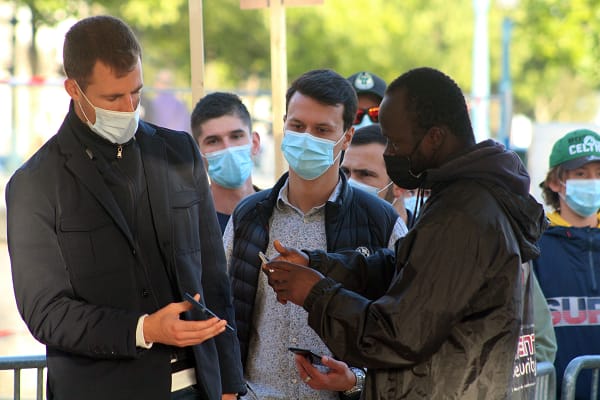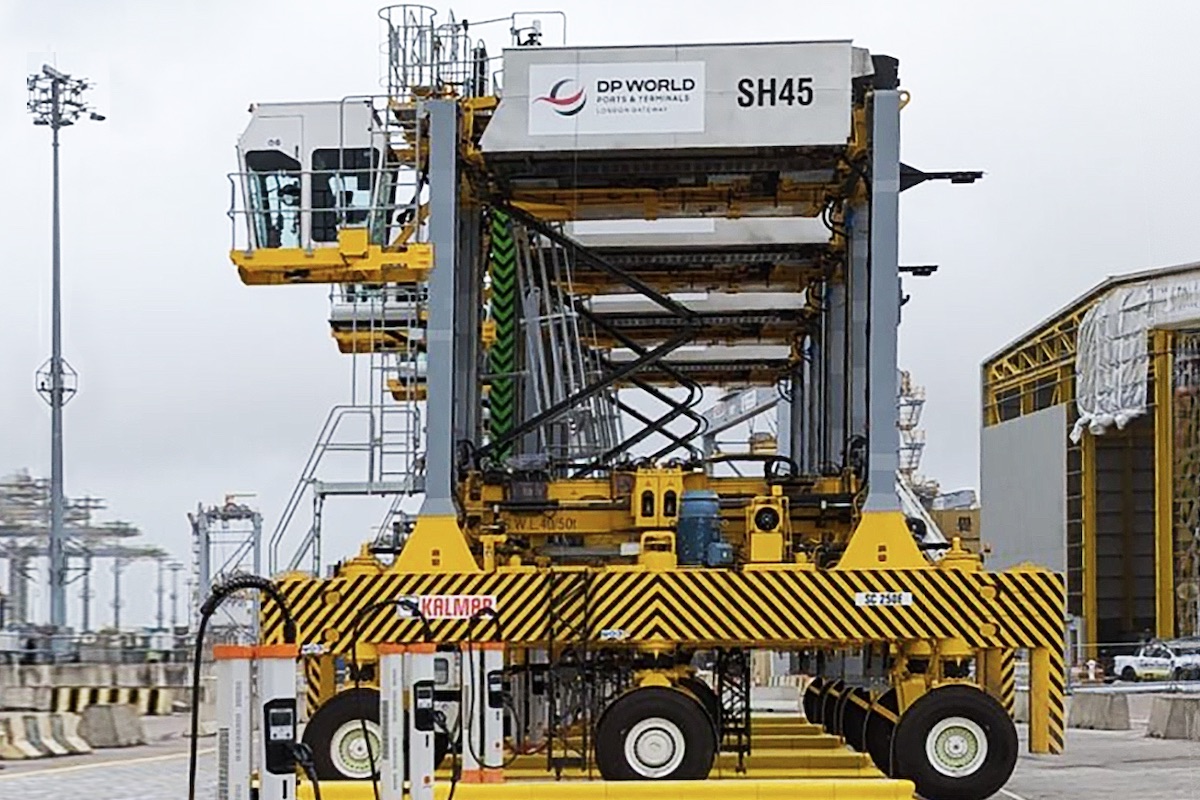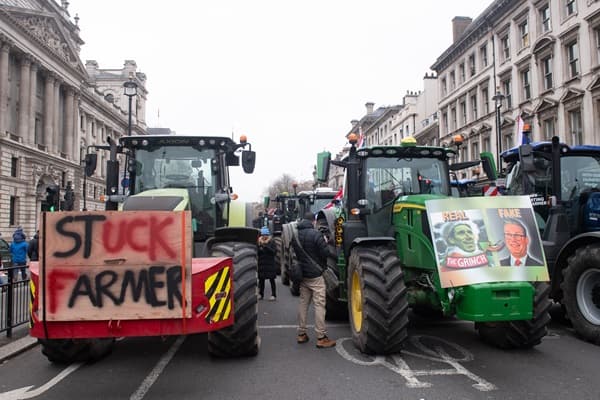Jobs
Greater Manchester sets sights on rail as plans for London-style public transport system ‘on time and on budget’ | RailBusinessDaily

Mayor Andy Burnham is urging the Transport Secretary to back the next phase of Greater Manchester’s Bee Network – expanding it to include eight commuter rail lines to create the first fully-integrated transport system outside London by 2028.
In a letter to Transport Secretary Heidi Alexander, Mayor Burnham will make the case for the city-region to oversee eight vital rail lines in order to improve services and support continuing growth of the city-region’s economy.
He will say that Greater Manchester is ready to apply the same focus, momentum and pace to bringing rail into the Bee Network as it has done with buses, calling for a firm timeline to be published in January setting out the necessary steps to make it happen.
It comes as the Bee Network marks the one month countdown to the completion of bus franchising, with the city-region on track to complete its pioneering work to bring buses back under local control on time and on budget.
On 5 January, more than 250 bus routes in Stockport, Tameside, Trafford and parts of Manchester and Salford will join the Bee Network. To mark the one month countdown, Mayor Burnham visited a bus depot in Wythenshawe where Metroline – one of London’s biggest bus operators – is training up the next generation of bus drivers ready for the new year.
He also revealed the planned next steps to make public transport in the region cheaper, cleaner and greener. This will be done by:
- Improving key bus routes: Newly-introduced earlier, later and more frequent buses on key routes that will run from January 5 have been published, planned specifically to create better links with tram and train timetables. See notes to editors for full details.
- Delivering newer, cleaner buses: 331 new buses, built to Bee Network standards, will run in the south of Greater Manchester. The yellow fleet will make up more than half (54%) of all buses needed to run services in those areas and will increase to 405 new buses (66% of the fleet) in April, building on the new vehicles already running on locally-controlled routes.
- Reviewing local bus services in every community: Aimed at delivering joined-up, reliable services, a programme of local network reviews will start in the new year. They will explore how buses can better serve communities, making improvements that would not have been possible before franchising.
- Powering the Bee Network with homegrown clean energy: Transport for Greater Manchester (TfGM) is looking to strike a long-term deal to source power for Bee Network trams and buses directly from a renewable energy generator. The upcoming tender for a Power Purchase Agreement would provide the equivalent power to cover Metrolink’s current annual demand, and could grow to cover an increasingly electrified bus network.
- Electrifying the bus fleet: Going further and faster than any other region on bus electrification. Before franchising, fewer than 1% of buses in Greater Manchester were electric. By the end of April 2025, it will be 25%.
- Creating new jobs: Metroline has signed up 100 new drivers, with more to follow. Meanwhile a further 45 TravelSafe Support and Enforcement Officers are being recruited, making sure bus passengers feel safe when getting on board.
- Making fares more affordable: Applications open today for a new annual Bee Network bus ticket, providing unlimited bus travel on the Bee Network for just £2.20 a day – delivering a significant saving of up to £240 a year. The cost can be spread weekly or monthly via Greater Manchester’s credit unions. Prices of 7 and 28-day tickets are also coming down from January.
- Launching new Bee Network app features: Improvements are also coming to the Bee Network app, with new functions that will make it easier for people to plan their bus journeys now available, including disruption alerts and push notifications during major incidents, adding to an existing range of useful functions for customers.
Greater Manchester is celebrating even more people choosing to travel by public transport and active travel. Metrolink notched up a new record high for passenger numbers – with 1.1 million journeys made in the week from November 25 to December 1 marking its busiest ever week. Meanwhile, use of current Bee Network buses is up by 5% since coming under local control, with money from bus fares 9% above forecast for the year.
Greater Manchester Mayor Andy Burnham said: “We’re just one month away from bringing all buses under local control, delivering a major part of our London-style public transport system on time and on budget by 5 January. It will be a worthy addition to Greater Manchester’s long track record of firsts.
“We’ve today revealed some of the immediate changes we’re making in January, with buses running earlier, later and more frequently to better connect with trams and trains. We’re also planning to buy 100% renewable energy to power our trams, electrify our buses and bring in a simpler fare structure for passengers.
“Next year will be one of real change for Greater Manchester, as we encourage even more people onto public transport to build a low-cost, high patronage network.
“But we’re not stopping at buses – we want to do more. Our unreliable rail services are a brake on growth and we deserve better. By bringing them into the Bee Network we can deliver real change for our residents, increasing reliability and ultimately getting more people out of their cars onto public transport.
“We’ve shown we can deliver – now we’re ready to apply the same focus, momentum and pace to rail reform as we have with buses.
“I’m this week writing to the transport secretary to set out how we plan to approach bringing rail into the Bee Network, to create a true London-style public transport system. We’re committed to working with Government and the rail industry to agree and publish a clear timeline in January of how we’ll make this critical next step a reality.”
Completion of bus franchising is just one important step in the plans to create the UK’s first truly integrated public transport system outside the capital. Progress will be unrelenting in 2025, with ‘tap-in tap-out’ contactless payments across Bee Network buses and trams going live on 23 March 2025. Creating the London-style experience, passengers will be able make any journeys and be guaranteed the best daily or weekly fare.
The same focus that has been applied to bus franchising is now being applied to phase two of the Bee Network, with transformational plans being taken forward at pace for rail, including:
- Rail integration: A timeline, to be published in the new year, for eight local lines to join the Bee Network by 2028. The move will deliver major improvements to the city-region’s train stations, services and the experience for passengers – including integrated ticketing across bus, tram and train. Work to enable contactless pay-as-you-go on services between Glossop and Manchester and Stalybridge and Manchester will start next year and be complete in 2026, with other lines joining by 2028.
- Rail accessibility: A rolling programme to make stations accessible for everyone. TfGM is currently delivering step-free access at Daisy Hill and Irlam stations, and they are on course to complete in early 2025. TfGM will also deliver step-free access at three more stations in 2026 and two more in each of 2027 and 2028.
- New stations: The first of two new stations in Greater Manchester in more than 20 years will see Golborne open by the end of 2027.
Transport Commissioner for Greater Manchester Vernon Everitt said:
“The Bee Network is delivering positive change for the people and businesses of Greater Manchester, and we are already seeing the results, with better buses, more reliable services, growing numbers of passengers, new night buses and record levels of customer satisfaction.
“Our focus now is on delivering these improvements in south Manchester starting on 5th January. The scale of the overnight change involving 50 per cent of the Greater Manchester bus network is herculean and there will likely to be challenges for us to get on top of in the early days. Everyone from TfGM, our operators and many others are working hard behind the scenes to get everything ready.
“This is only the first chapter of the Bee Network story as we push on with creating a public transport and active travel network that matches the scale of the region’s growing economy and the need to better connect people to new jobs, homes, education and opportunity.
“We’ll be applying the same rigour and ambition we’ve shown with buses to bring rail into the Bee Network and will be setting out a roadmap for this ambitious programme of work in the New Year as well as a step change in making rail stations accessible, with upgrades at 13 stations over the next three to four years, compared with four in the last decade.”
Patrick Sibley, Regional CEO, Metroline Manchester said: “With just one month remaining until the launch of our services in Manchester, the Metroline Manchester team is hard at work preparing for this exciting step towards serving the local community. We are proud to support the Bee Network in delivering reliable transport services across the region and contribute to local job creation in Manchester. To date, we have successfully recruited over 100 driving staff, an entire local Senior Management Team, and more than 30 supervisory and managerial team members with additional opportunities to emerge as we approach the start of operations.”











